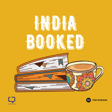
India Booked | The Story of India's Most Popular Prayer
An appeal to the Lord to arise and save the world, the Venkatesa Suprabhatam is the first of four recitations that are sung together every morning in the Lord Venkateswara temple in Tirumala, where it was originally sung.
Prativadi Bhayankaram Anna, who composed this prayer in the fifteenth century, was a saint, a poet and an ardent devotee of Lord Vishnu. The poet’s devotion shines through, most unforgettably in M.S. Subbulakshmi's rendition, which rings through many south Indian homes in the mornings.
Venkatesa Suprabhatam: The Story of India’s Most Popular Prayer is a translation of the prayer, a journey through its verses. This episode finds host, Ayushi Mona in a deep dive into the history of its composition and the circumstances with author Venkatesh Parthasarthy.
